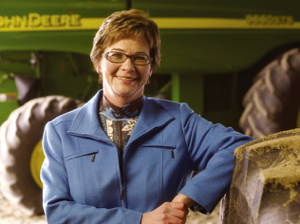Lenders want details of what you want the money for, how you will repay it, and what your backup plan is

Looking for a loan or an increase in your line of credit?
Here are five key questions you should be able to answer before talking to your lender.
1. What are you going to do with the money?

“First off, do you have a clear plan of what you are going to do with the money?” said provincial farm financial specialist Rick Dehod. “Is it for operating, is it to buy land (how many acres, what buildings) or machinery (new or used)? How does this relate back to your business plan and overall farm investment strategy? Is your goal to expand, stay current with evolving technology, or just continue to operate? Is it a business decision or an emotional decision? Are your business partners in agreement? Does the potential return on equity by levering borrowed capital meet your goals and objectives?”
2. How much do you want?

It’s important to decide how much cash and how much borrowed money is needed.
“Using all your cash will impact your farm’s liquidity and possibly its ability to meet all of your commitments as they come due. Large payments on borrowed capital can affect your working capital position and your ability to manage risk. How much of your current equity are you willing to put at risk?”
3. How long do you want the money for?

“Look at the loan amortization length, and resulting loan payments to see if the payments meet your cash flow and your ownership goals. A longer loan amortization with a prepayment privilege may provide less stress on cash flow should margins tighten. Agriculture markets are cyclical.”
4. How are you going to repay the money?

A lender will want to know how you will service additional debt, said Dehod.
“Your past income and expenses is a good benchmark to determine your future repayment ability,” he said. “Using this as a base, you can do a projection of what your future income and expenses will be and what your debt service requirement can be.
“Doing a sensitivity analysis by decreasing your income 10 per cent and increasing your expenses by 10 per cent will give you an indication of your repayment risk and your ability to make your payments, should things go not as planned.”
5. What are your alternative sources of repayment in the event of something going wrong?

“Life happens,” said Dehod. “People have accidents or illnesses that make them unable to manage their farms on a timely basis. People divorce.”
These sorts of issues not only make operating a farm more stressful, but can also tax its financial resources.
“Agriculture is a risk business. Weather can’t be controlled but can be managed. Agricultural markets fluctuate. All of these can affect the farm’s ability to generate the revenue required to make its payments and meet all of its commitments. What is your risk mitigating strategies should any of these events happen? We can’t foresee everything, but we can plan to manage life’s risks.”
If you can answer all of these questions, and are comfortable with your answers, the next step is to go to the bank, Dehod concluded.











